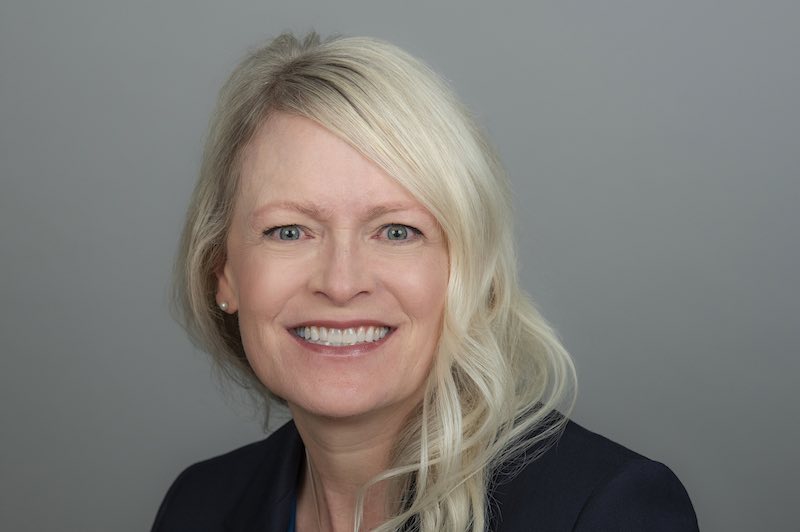
Granite Hills Hospital plans growth

Granite Hills Hospital in West Allis continues to add beds.
The inpatient psychiatric hospital, run by Pennsylvania-based Universal Health Services, has a maximum capacity of 48 beds, after opening 12 beds last September. CEO Angela Sanders said they plan to add at least a dozen adult beds this year.
The hospital started an adult partial hospitalization program last month and plans to offer youth outpatient services by the end of 2024.
“We’ve seen growth, and we’re planning growth,” Sanders told Wisconsin Health News this week.
Sanders, a clinical psychologist, joined Granite Hills about 10 months ago. She was involved with the redesign of Milwaukee County’s behavioral healthcare system, part of which included closing the county-run hospital and contracting with Granite Hills.
The 120-bed hospital had its ribbon cutting in 2021. It was originally expected to have five units, with three serving adults, one serving young people and one serving seniors.
Sanders said they still plan on reaching 120 beds, but they are evaluating market needs for a senior unit.
Her focus since joining the hospital has been on recruiting talent.
“There were some challenges early on with a new entity coming into the Milwaukee and Wisconsin community,” she said. “I really value that local presence and really want to have partnerships with the local community.”
They recently sponsored the National Alliance on Mental Illness and the Wisconsin Psychiatric Association and plan a “long presence” in the state, she said.
Edited excerpts from the interview are below.
WHN: Part of the redesign process involved closing the county’s inpatient hospital in lieu of Granite Hills taking on its patients. There’s been frustration with the slow ramp-up of beds. How are you addressing that?
Sanders: As with many startups, there were some challenges. Since I have been here, we have had fewer patients that have needed state hospital level of care. That’s data that we track, like how many admissions do we accept. We’ve been performing much better. We’ve really helped establish our foundation here of operating and also a core team. One of the things we say is we’re really granite strong. We’ve built that foundation, and we feel that we’re really in a position for successful growth.
At this stage, our biggest challenge is workforce, which is similar to a lot of healthcare entities. One of the things that we’ve been doing is partnering with some of the schools. Currently, we have five students coming from the Wisconsin School of Professional Psychology that are doctorate-level students. We’re in the early stages of having conversations with Concordia to be a training site for social workers. We’re just starting some conversations with some other local schools for nurses and our technicians.
WHN: What impact are workforce needs having on your ability to scale?
Sanders: Part of my goal, as a new leader here at Granite Hills, is to really recruit the right talent. I’m a strong believer that the right leaders help establish a healthy work culture. The reality is the work that we do is challenging enough. We need to create a safe and supportive space for all of our employees.
We’re in a good position in terms of being able to recruit the right talent — and not only recruit our own talent, but also do some development with the existing team. Part of the advantage of being tied to a larger corporation is they have a lot of structure to support people who might be interested in advancement.
WHN: Are UHS staff from other sites around the country supporting care in West Allis through telehealth?
Sanders: We historically have used telehealth. But I have been working very hard since I joined the Granite team to really bring providers on site — people who are rooted locally in the community. I’m very happy to say that we have a medical director who’s local and comes on site. Also, we’re in a position that we’re hoping that all of our providers will be doing work on site. Sometimes we do need to use locums or virtual work to fill in gaps. But my goal is, ultimately, to have people that come in and provide those services. We have successfully used them in the past, but I just feel that it’s better patient care when the provider is here on site.
WHN: What healthcare gaps do you see in Milwaukee County?
Sanders: With this redesign, a lot of the county services partnered with our local federally qualified health centers and created outpatient access closer to where people need that level of care.
In my opinion, it is doing community education about the redesign, so people know what level of care they need to go to, and also having more conversations to reduce stigma in the community, so that people can get the help earlier on as opposed to waiting until there’s a crisis and significant safety concerns.
WHN: What’s next for Granite Hills?
Sanders: It is taking a look and continuing our efforts on excellent patient care and excellent patient outcomes, recruiting the right talent — people who are experienced, knowledgeable and very compassionate for individuals who come in needing the highest level of care — and positioning ourselves for growth.
This article first appeared in the Wisconsin Health News daily email newsletter. Sign up for your free trial here.





